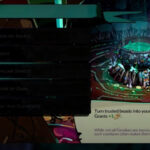In the magical world of Harry Potter, family names carry significant weight, often denoting lineage, status, and history. When considering the diverse inhabitants of this fantasy realm, questions arise about naming conventions across different species. One such intriguing question revolves around house-elves: do these loyal and often mistreated beings possess family names in the same way wizarding families do? Delving into the lore, it becomes clear that the concept of “Fantasy Family Names” takes a different form, or rather, is largely absent, for house-elves within this universe.
The primary reason house-elves are not associated with family names is rooted in their societal position. Within the wizarding world, house-elves are essentially considered property, bound to serve a family for generations. This concept is starkly illustrated through the relationship between the Malfoy family and Dobby. To give a house-elf a family name, in the human sense, would be to acknowledge a level of independence and social standing that is deliberately denied to them. From the perspective of wizarding families, there is simply no need to bestow upon their servants a marker of familial identity.
Furthermore, the very nature of house-elf society, as hinted at in the books, suggests a different structure than human families. Unlike wizards and witches, house-elves don’t seem to adhere to the nuclear family model that was more prominently understood during the time period in which the Harry Potter series is set. As the original article points out, there’s little evidence of documented lineage or family trees for house-elves. When house-elves like Dobby and Winky find themselves freed, there’s no established system or “House Elf Legion Office” to support them in finding new positions or societal integration. Their experiences searching for work highlight that the wizarding world doesn’t recognize them as individuals with typical employment rights or needs.
“When Dobby goes to Winky, and he finds out she has been freed to, sir! So we goes door to door looking for work, and many slammed doors in our faces, saying ‘House Elf-looking for pay,” they says, “that isnt the point of a House Elf.”
This quote from the original text emphasizes the lack of institutional support or recognition for house-elves outside of servitude. If there were established family structures and last names, one might expect some form of societal framework to acknowledge and interact with house-elves beyond their roles as servants.
Moreover, the reproduction process of house-elves, as implied in the original article and throughout the Harry Potter series, further diverges from human family norms. The suggestion that house-elf reproduction might involve pairings from different “esteemed” wizarding families, with offspring staying with the mother, points to a system driven by the needs and control of wizarding families rather than typical familial bonds. The grim reference to beheaded house-elves “too old to carry a tea trey” underscores the disposable view held by some within the wizarding world, further diminishing the likelihood of family names being a relevant concept for them.
In conclusion, the absence of fantasy family names for house-elves in Harry Potter is not merely an oversight but a reflection of their deeply ingrained status as property and their unique societal structure within the wizarding world. Unlike the prominent family names of wizards and witches, which signify heritage and belonging, house-elves exist outside this system, their identities defined by servitude rather than familial lineage in the traditional sense. Therefore, when exploring “fantasy family names,” the case of house-elves serves as a stark example of how naming conventions can be profoundly shaped by social hierarchy and the very definition of family within a fictional universe.

